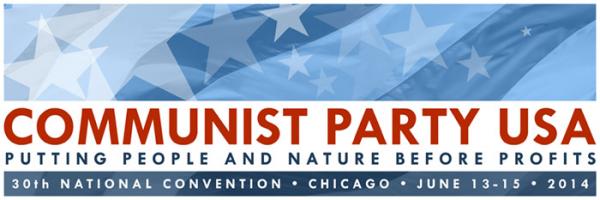
Submitted by Kuya Kemet, Baltimore, MD
Someone asked the great Kwame Nkrumah what his understanding was of nationalism. His answer was that there are different kinds of nationalism: narrow nationalism, (cultural) nationalism, progressive nationalism and revolutionary nationalism. Unfortunately Kwame did not live to explain himself. That task was left to others such as Dr. Walter Rodney, a great historian and Marxist, to decipher.
Narrow nationalism exhibits itself around race, ethnicity and tribal-first reasoning in the most resolute ultra-rightist, chauvinistic way. Examples of race-first Narrow Nationalists are: Henry VIII, James Monroe who coined the Monroe Doctrine in 1823, later to be called Manifest Destiny, Benito Mussolini, Adolf Hitler, Pol Pot, Leonard Jeffries, Kahlid Muhammed. However, not all narrow nationalists express open racism: Papa Doc and Baby Doc Duvalier, Bin Laden, Idi Amin, Jonas Savimbi are examples. This nationalism is way too narrow to grasp the motive force of history which is class struggle. This nationalism can never transform society.
Cultural Nationalism: This nationalism is more subtle, more covert in its appeal. It gives the masses the illusion that it is international when in action it is not. The narrow nationalists and the cultural nationalists which are bourgeois agree on many key issues, such as race-first (not class) importance, chauvinism, the woman question and social and economic power. This nationalism has little or no class analysis, despite the claim. Some even state that Marcus Garvey was espousing communism. Nothing is further from the truth. This nationalism uses culture as the main weapon for the liberation of a people, not realizing that it is the economic and political structure that will free them. This nationalism can be seen in Marcus Garvey and Mao Tse Tung. Not all cultural nationalists think alike. However this nationalism can be seen in A Phillip Randolph, Whitney Young, Marian Barry, Hillary Clinton, Earl Browder, John Gates, Maurice Childs, Yeltsin, Gorbachev, Winston Churchill, Tony Blair, etc. “American exceptionalism” falls under this category. This nationalism gives the illusion it has a class analysis pat down, but this nationalism is no solution, does not even offer a pitiful respite for society. This nationalism believes in imperialism in one form or another.
Progressive nationalism. This nationalism embraces internationalism but not as resolutely as the last form to be viewed later. This can be seen in Ben Jealous, Barbara Lee, Ron Dellums, John Conyers, Bernie Sanders, Naomi Kline, Ralph Nader, Danny Glover, Paul Newman, Dr. King, Harry Belefonte, George Crockett, Harold Washington, Amy Goodman, Rosa Parks, Ossie Davis, Ruby Dee, Martin Sheen, Bruce Springsteen, Sting, Vernon Johns, just to name a few. This group calls for reforms but not necessarily radical reforms in society and has some class analysis.
Revolutionary nationalism: This group includes the most resolute nationalists. They have a working understanding of class and class struggles. Some of them move forward to embrace Marxism-Leninism in thought and action. They not only call for radical reforms in society but go into action to bring them into reality which is necessary as a prerequisite to socialism. This group is the most consistent anti-imperialist group. This can be seen in Georgi Dimitrov, Che Guevara, Fidel and Raoul, Jose Marti, the Maceo brothers, Maximo Gomez, Simon Bolivar, Sandino, Maurice Bishop, Hugo Chavez, Ho Chi Minh, General Giap, Le Duan, Augustino Neto, Amilcar Cabral, Kwame Nkruma, Paul Robeson, W. E. B. DuBois, Gus Hall, Henry Winston, Assata Shakur, Mumia, Chokwe Lumumba, Samaro Machel, Hubert Harrison, Cyril Briggs, Ericka Huggins, Angela Davis, Fred Hampton, Elaine Brown, Eddie Conway, etc. This group of men and women plus thousands more helped to spark revolution all over the world. The group of heroes and sheroes has helped transform society, embracing all humanity and nature.
In a little known book, written, first as a pamphlet, then becoming the Communist Manifesto in 1848, the motto was quoted, “Nothing human is alien to me.” 166 years later in 2014, that motto still holds true.
Let us be clear, revolutionary nationalism can be transformed into Marxism which is the most radical of all nationalism. Despite the massive set-backs released by an unrelenting beast called capitalism, Marxism, itself, while it states that it must not be a dogma, is still the blueprint for moving society forward in the most radical fashion.
The views and opinions expressed in the Convention Discussion are those of the author alone. The Communist Party is publishing these views as a service to encourage discussion and debate. Those views do not necessarily reflect the views of the Communist Party, its leading bodies or staff members. The CPUSA Constitution, Program, and all its existing policies remain in effect during the Convention discussion period and during the Convention.
For details about the convention, visit the Convention homepage
To contribute to the discussion, visit the Convention Discussion webpage
CONVENTION DISCUSSION
30th National Convention, Communist Party USA
Chicago | June 13-15, 2014


 Join Now
Join Now